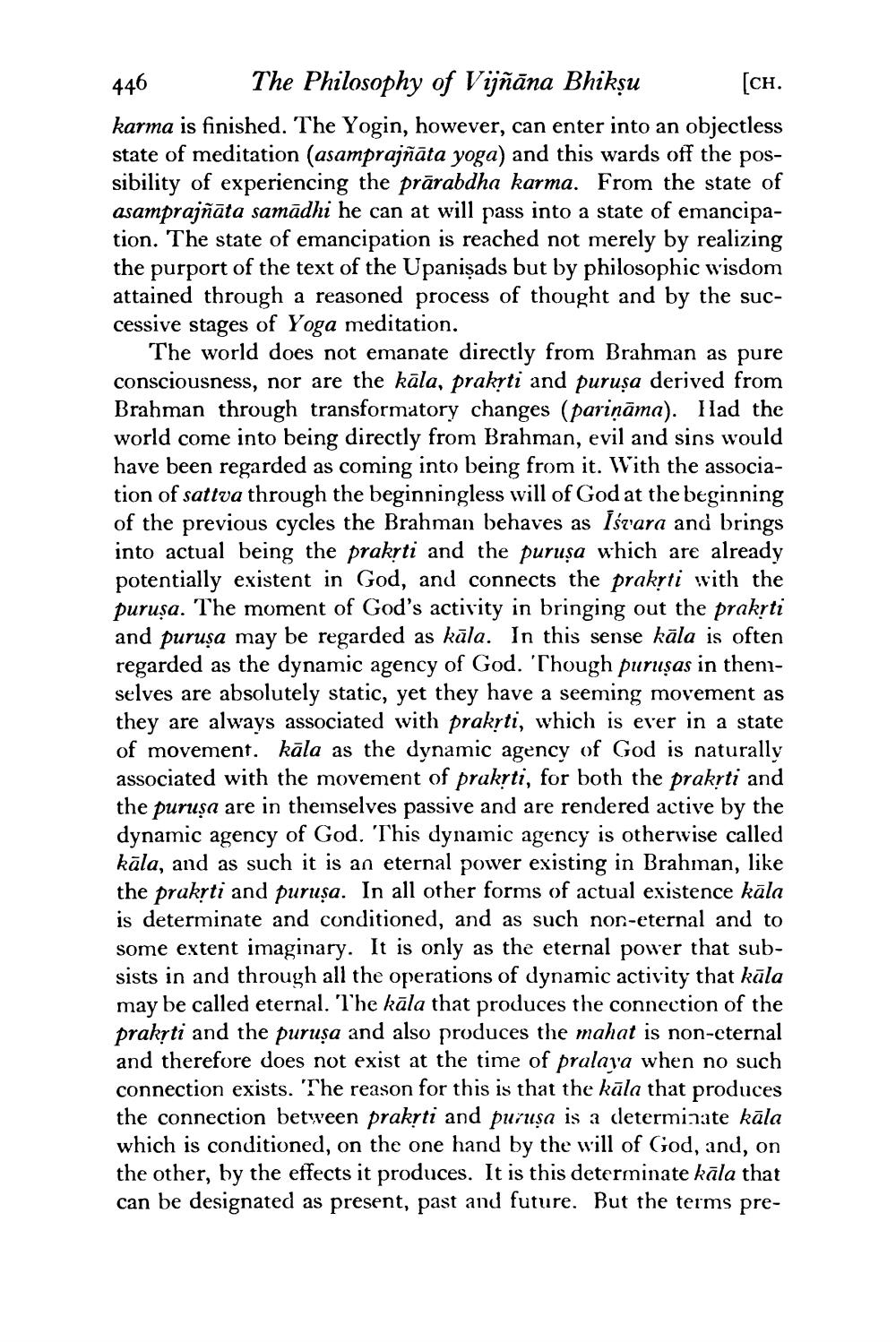________________
446 The Philosophy of Vijñāna Bhikṣu [cH. karma is finished. The Yogin, however, can enter into an objectless state of meditation (asamprajñāta yoga) and this wards off the possibility of experiencing the prārabdha karma. From the state of asamprajñāta samādhi he can at will pass into a state of emancipation. The state of emancipation is reached not merely by realizing the purport of the text of the Upanişads but by philosophic wisdom attained through a reasoned process of thought and by the successive stages of Yoga meditation.
The world does not emanate directly from Brahman as pure consciousness, nor are the kāla, prakrti and purușa derived from Brahman through transformatory changes (pariņāma). Had the world come into being directly from Brahman, evil and sins would have been regarded as coming into being from it. With the association of sattva through the beginningless will of God at the beginning of the previous cycles the Brahman behaves as Iśvara and brings into actual being the prakrti and the purusa which are already potentially existent in God, and connects the prakrti with the puruṣa. The moment of God's activity in bringing out the praksti and purusa may be regarded as kāla. In this sense kāla is often regarded as the dynamic agency of God. Though purusas in thenselves are absolutely static, yet they have a seeming movement as they are always associated with prakrti, which is ever in a state of movement. kāla as the dynamic agency of God is naturally associated with the movement of prakrti, for both the prakrti and the puruşa are in themselves passive and are rendered active by the dynamic agency of God. This dynamic agency is otherwise called kāla, and as such it is an eternal power existing in Brahman, like the prakrti and puruṣa. In all other forms of actual existence kāla is determinate and conditioned, and as such non-eternal and to some extent imaginary. It is only as the eternal power that subsists in and through all the operations of dynamic activity that kāla may be called eternal. The kāla that produces the connection of the prakrti and the puruşa and also produces the mahat is non-eternal and therefore does not exist at the time of pralaya when no such connection exists. The reason for this is that the kāla that produces the connection between prakrti and puruşa is a determinate kāla which is conditioned, on the one hand by the will of God, and, on the other, by the effects it produces. It is this determinate kāla that can be designated as present, past and future. But the terms pre




